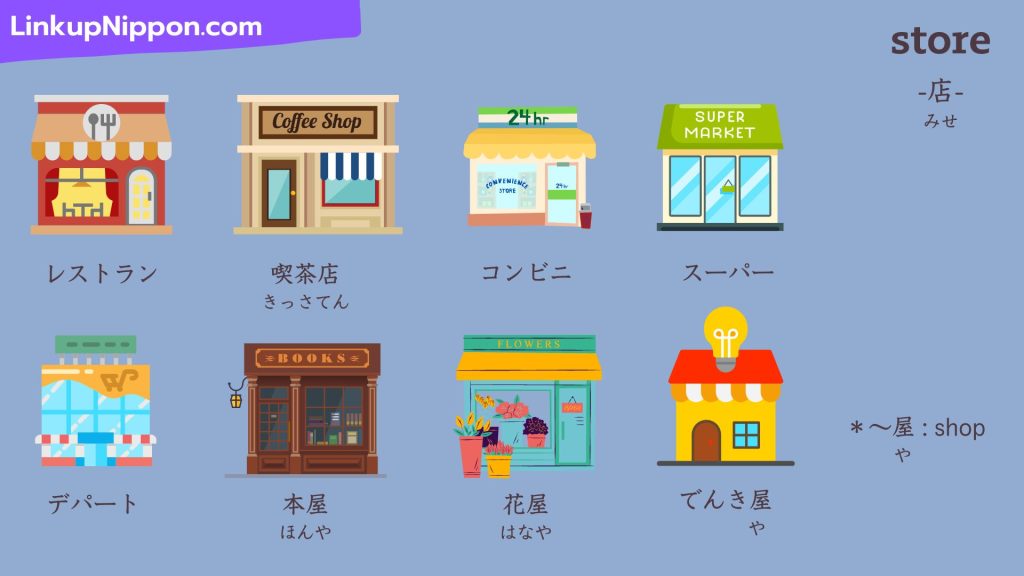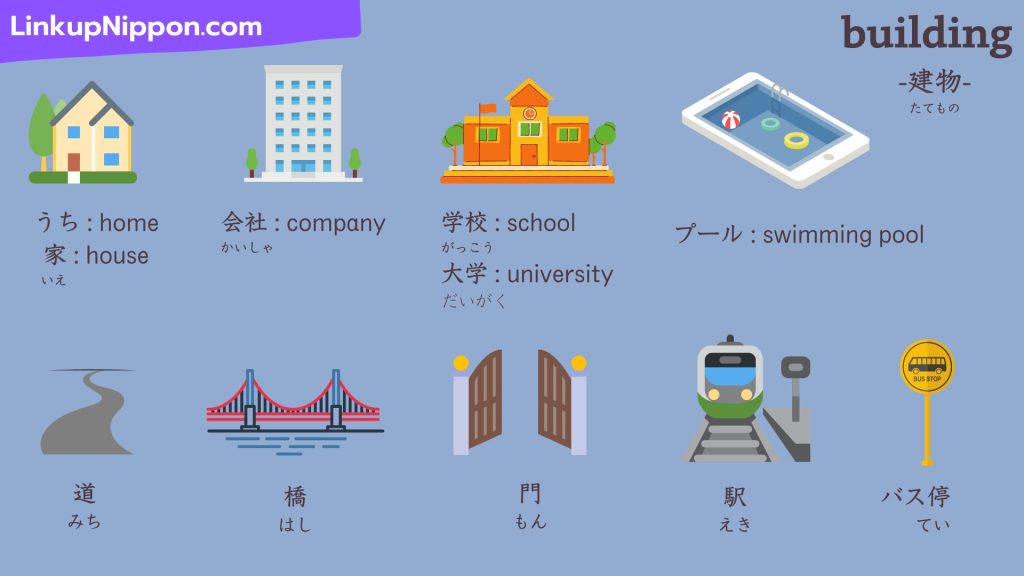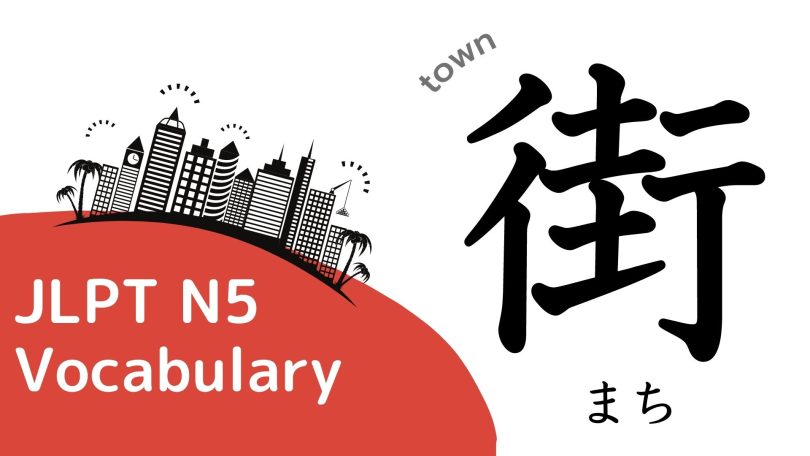Today, We will study Basic Japanese vocabulary related to “facility ” in your town that will appear on the JLPT N5. Use infographics, flashcards, and practice tests to study effectively. Get ready!
Table of contents
Note:Think of your town and try to describe it!
Many of the words here are facilities and buildings you will definitely need if you decide to live in Japan, rather than travel. After all, traveling and living are really different. Let’s check out some of the places you will need to live. First, tell me about your city! Send us your Essay in the comments section.
Infographic:
Facility

| English translation | Japanese |
| hospital | 病院(びょういん) |
| post office | 郵便局(ゆうびんきょく) |
| hotel | ホテル |
| bank | 銀行(ぎんこう) |
| library | 図書館(としょかん) |
| movie theater | 映画館(えいがかん) |
| embassy | 大使館(たいしかん) |
| police station | 交番(こうばん) |
| park | 公園(こうえん) |
The kanji for “館(かん)” means “pavilion. This kanji is often used for buildings. Also, Japan is famous for “returning lost money and mobile phones” because everyone delivers them to police stations. There are always one at each station or area.
Store

| English translation | Japanese |
| restaurant | レストラン |
| post office | 喫茶店(きっさてん) |
| hotel | コンビニ |
| bank | スーパー |
| library | デパート |
| movie theater | 本屋(ほんや) |
| embassy | 花屋(はなや) |
| police station | でんき屋(や) |
| park | 公園(こうえん) |
The kanji “屋(や)” means store. If you add “屋(や)” to what they are selling, it is usually the name of a store. Additionally, The JLPT exam uses “喫茶店(きっさてん)” for coffee shop, but to be honest, this may not be practical. When native speakers hear the word “喫茶店(きっさてん)” , they think of an old-fashioned café. These days, “カフェ” is often used in katakana.
Building

| English translation | Japanese |
| home | うち |
| house | いえ |
| school | 学校(がっこう) |
| university | 大学(だいがく) |
| swimming pool | プール |
| path, road, way | 道(みち) |
| bridge | 橋(はし) |
| gate | 門(もん) |
| station | 駅(えき) |
| bus stop | バス停(てい) |
People often ask me about the difference between ”うち” and ”いえ”. In Japanese speech style and culture, the idea of ”うち(inside)” and “そと(outside)” is a very important function. “うち” has the meaning of a place to which one belongs. Japanese people have a very strong sense of belonging and collectivity. We sometimes say “うち の かぞく (my family)” or “うち の かいしゃ (my company). When we simply say “うち”, we often refer to our own home.
Flash card video
Practice test video
Recommendation books for JLPT
Here, you can add your training with using these book for JLPT N5.

The Preparatory Course for the Japanese Language Proficiency Test: N5 Reading
Please check this article too.
Keep learning…!
Lastly, the JLPT vocabulary is about 800 words. So, continuous daily study is key. Check out the others, and keep building your vocabulary!







